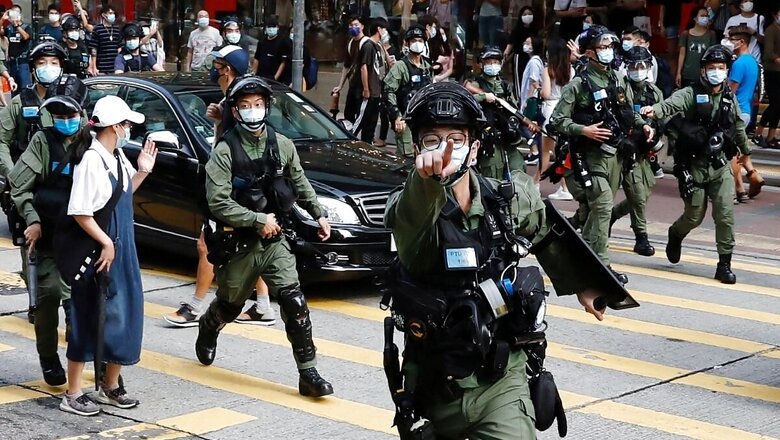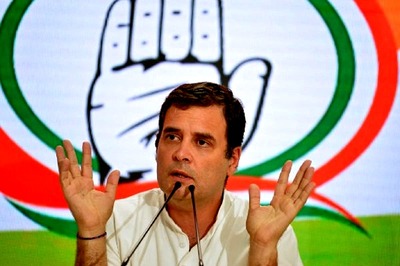
views
China’s rubber-stamp parliament voted Thursday for sweeping changes to Hong Kong’s electoral system — including powers to veto candidates — as Beijing moves to ensure only “patriots” run the city following huge pro-democracy rallies.
Beijing has acted decisively to dismantle Hong Kong’s limited democratic pillars after massive and sometimes violent protests coursed through the financial hub in 2019.
At last year’s meeting of the National People’s Congress, the Communist Party leadership imposed a draconian national security law on the finance hub that has since been weaponised against the democracy movement.
Dozens of campaigners have been jailed, smothering protests in a city which had enjoyed greater political freedoms than on the authoritarian mainland under a system dubbed “one country, two systems”.
On Thursday, only one member of the 2,896-strong National People’s Congress abstained in the vote, which critics say will hammer another nail in the coffin of Hong Kong’s democracy movement.
The decision aims to place the power of governing the city “firmly in the hands of forces that are patriotic and love Hong Kong”, parliamentary spokesman Wang Chen said in Beijing at the opening of the congress on Friday.
Senior Chinese officials have since made clear loyalty to the Communist Party will be key to deciding if a Hong Konger is a “patriot”.
Chinese state media on Thursday sketched out some of the key provisions of the law, which will still need to be written and then promulgated under the country’s opaque political system.
Those include an Election Committee which votes for the leader to reflect Hong Kong’s “realities and representative of the overall interests of its society,” according to Xinhua.
The committee would be fattened out to 1,500 representatives, up from 1,200.
In addition, the law will bring in a “candidate qualification review committee”, as well as boost the number of seats in the LegCo — Hong Kong’s legislature — from 70 to 90.
It was not immediately clear how many of the seats would be directly elected by Hong Kong’s people.
But the initial details show China plans to reduce the number of directly elected officials in both the LegCo and the committee that chooses the chief executive, said Willy Lam, professor at the Chinese University of Hong Kong’s Centre for China Studies.
“It’s a fail-safe formula to ensure only people deemed patriots will be on those two important bodies,” he told AFP.
“From Beijing’s point of view, members of the pro-democracy coalition are not considered to be patriotic.”
– Grateful Lam –
Hong Kong’s pro-Beijing leader Carrie Lam was swift to applaud the plan to re-write the electoral landscape of her city.
“The Hong Kong government and I firmly support the decision and express our gratitude from the bottom of our hearts,” Lam said.
But aides have admitted the move is a “setback” for Hong Kong’s progress on democratic development, according to Bernard Chan, a top adviser to city leader Lam, earlier this week.
“Over the last 23 years, we clearly didn’t do a good job to show to the central government that these so-called political reforms are actually helping ‘One Country, Two Systems’,” Chan told AFP.
China had committed to giving Hong Kong a degree of autonomy when it reverted from British colonial rule in 1997, a status that has unravelled in recent months — drawing international criticism.
Until recently Hong Kong has maintained a veneer of choice, allowing a small and vocal opposition to flourish at certain local elections.
Generally when Hong Kongers are allowed to vote, they vote in droves for pro-democracy candidates.
In recent years, however, authorities have ramped up the disqualification of politicians either sitting in the city’s semi-elected legislature or standing as candidates, based on their political views.
Last month, Hong Kong announced its own plans to pass a law vetting all public officials for their political loyalty to Beijing.
Wang had said the “chaos in Hong Kong society shows that there are obvious loopholes and defects in the current electoral system”, giving an opportunity for “anti-China forces in Hong Kong” to seize power.
Read all the Latest News, Breaking News and Coronavirus News here



















Comments
0 comment